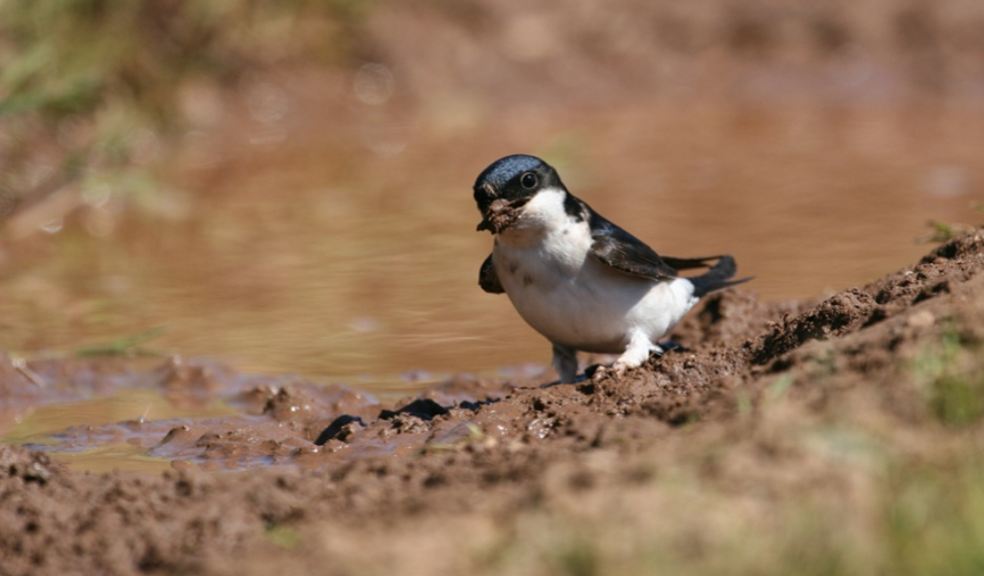
How mud pies could provide a lifeline for birds as heatwave spreads across the UK
As a heatwave spreads across the country, now is the time to help the thousands of migratory birds currently returning to their homes around the UK. The RSPB explains what to look – and listen – out for, and how we can help them after their epic journeys.
With bird breeding season now well underway, these birds are busy finding mates, building nests and bringing up broods, and there’s a host of ‘new faces’ in our gardens, woodlands, countryside and along our coastlines.
Many of these returning migratory birds have flown hundreds, often thousands, of miles from wintering grounds in more southerly, warmer countries. These include truly iconic species such as house martins and swifts - but sadly, these birds have seen sharp declines in their numbers over the last two decades – in some cases, by more than 50%.
Affected by changes in climate, loss of nesting sites and reduction in food supplies, swifts and house martins having jumped from the green to red list of conservation concern in 2021. Rare ground-nesting birds like little terns, are also arriving back in the UK and looking for safe spaces to nest on shingle beaches this month.
As these icons of the skies return to UK shores, here’s the top 5 things you can do to help migratory birds near where you live
1. Put up nest boxes or cups – swifts and house martins’ new status sadly means they’re in danger of extinction. They need suitable places to nest when they come back to the UK to breed and so putting up a nest box fit for these birds can really help.
2. Leave out a muddy puddle – as our days get warmer and the ground hardens, less mud is available for house martins to use to build their own mud cup nests. A simple way to help is leaving out a dish of soil and water mixed together – your very own muddy puddle – for these birds to make use of while we enjoy the sunshine.
3. Watch your step to help ground nesting birds – lots of people don’t realise many birds nest on the ground in a wide variety of habitats, including heathlands, uplands and on beaches. As the temperature rises, our beaches often get busier and you can help give rare ground nesting birds like little terns space to breed by keeping dogs on leads and watching where you walk. To find out more search #WatchYourStep on Twitter or Facebook.
4. Plant to attract insects – having an insect-friendly lawn, planters or even balcony box will help a range of pollinators and provide much-needed food for birds.
5. Put away the pesticide – using chemicals to kill dandelions and aphids also impacts on a whole range of insects in our gardens. In time, this affects the very things you were trying to protect – plants, soil and wildlife – for example reducing the available food for migratory birds.
As the RSPB’s Charlotte Ambrose shares: “Now is as good a time as ever to help the wildlife near you. Whether from your garden, balcony, or local greenspace, taking a few simple steps to give the nature on your doorstep a helping hand this spring can really give birds such as swifts, swallows and house martins the boost they need as they grace our skies once more.”
For more ways to help nature this spring, including more simple ideas whatever your outdoor space, visit rspb.org.uk/yourdoorstep.












